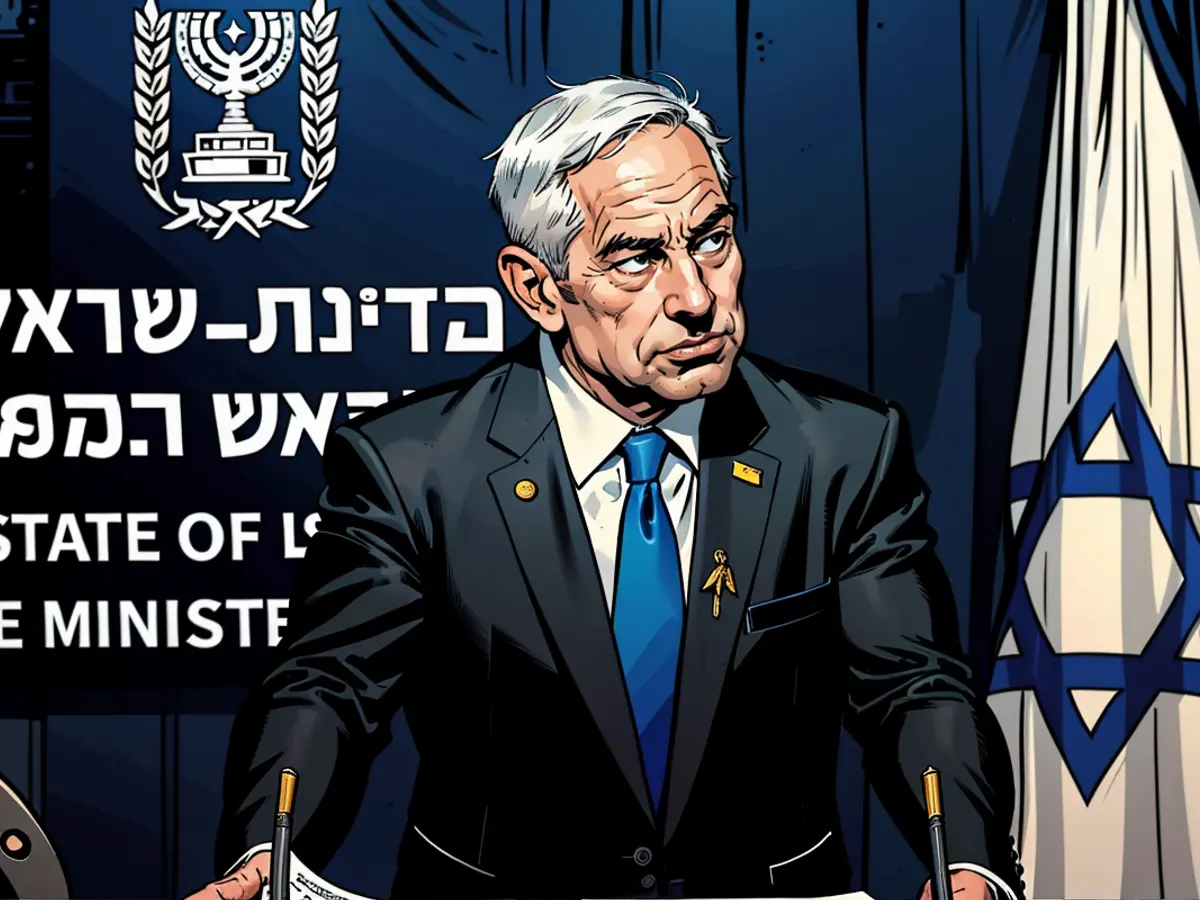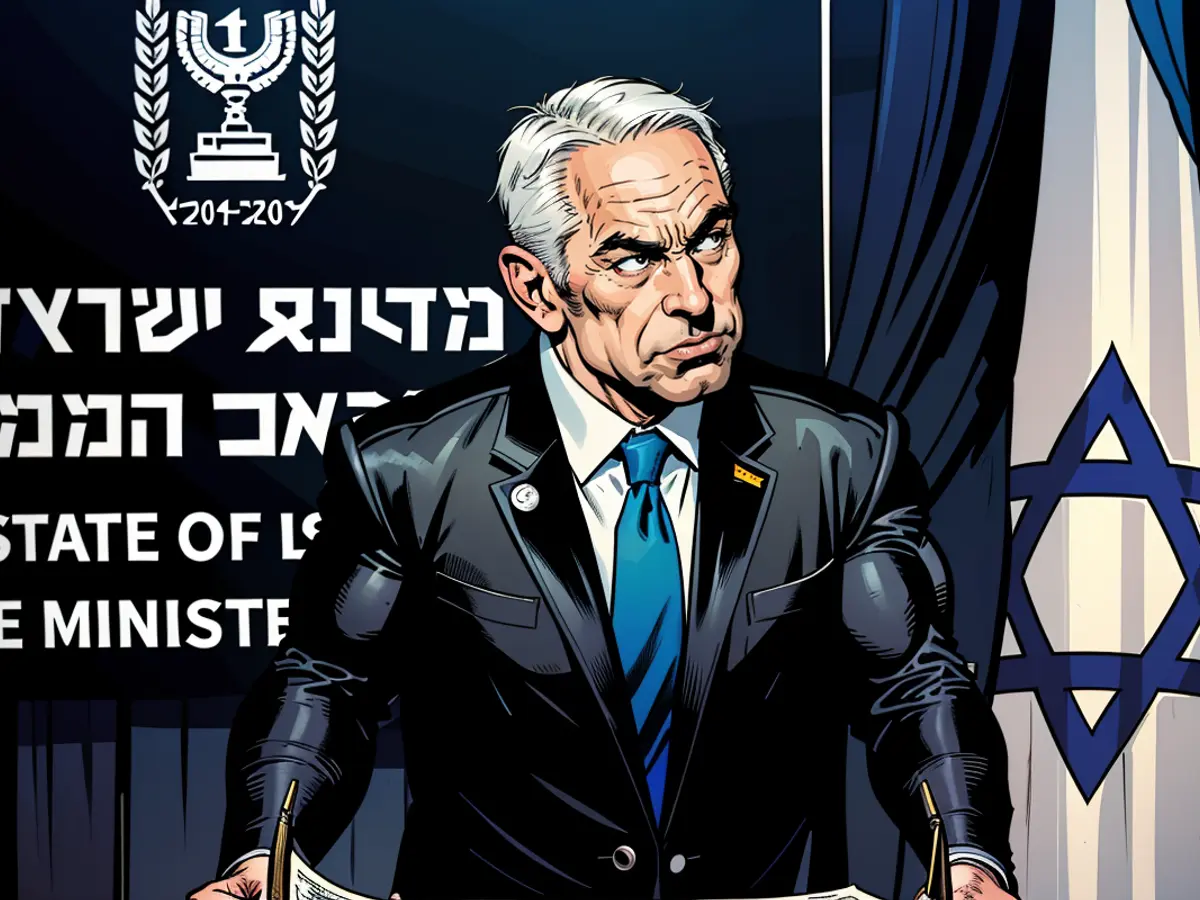Challenges in mediating a ceasefire agreement in Gaza cast uncertainty upon whether conflict resolution will be accomplished before President Biden's tenure ends.
Biden and his team have kept expressing optimism about negotiating a deal, but recent complications have dampened their spirits.
Insiders claim that Hamas and its leader, Yahya Sinwar, might not be genuinely interested in an agreement. They accuse Hamas of making the negotiations more challenging post the recent execution of six hostages in Gaza.
Israeli Prime Minister Benjamin Netanyahu has also dampened US hopes, even though Biden's team has mainly kept quiet about criticizing him. Netanyahu openly stated this week that a deal is not imminent and is advocating for a permanent Israeli presence in southwestern Gaza, defying international calls, including the US, for Israel to withdraw eventually.
Protests against the Netanyahu government have escalated in Israel due to the government's inability to secure a deal that would bring back the more than 100 hostages, several of whom are American.
US officials maintain that the main cause of the stalemate is Hamas. One senior official admitted to CNN that Hamas "may never want a deal," echoing the widespread concerns raised in public and private about Sinwar's desire to reach a "yes" in ceasefire and hostage talks that have stalled once again.
When asked if more pressure on Netanyahu could help close a deal, another senior official replied, "The president has chosen his strategy to get Netanyahu to the finish line."
Regarding withholding weapons or using other US leverage over Israel, the senior official questioned if it would change Israel's behavior, given the presence of far-right minister Itamar Ben-Gvir in the government.
US Secretary of State Antony Blinken said that both Israel and Hamas were responsible for reaching a "yes" on the remaining issues.
If a ceasefire agreement fails to materialize in the next few months, it would be a significant foreign policy setback for Biden, who has spent a considerable amount of time, effort, and political capital pushing for an end to the conflict. Biden's focus on foreign policy, especially the Gaza conflict, has increased in recent weeks following his decision to end his reelection campaign.
Aides described Biden as "obsessed" with the issue recently.
The disturbing news over the weekend that Israel's military had recovered the bodies of six hostages murdered by Hamas in Gaza, including Israeli-American Hersh Goldberg-Polin, set off alarms in the administration about Sinwar's willingness to negotiate a ceasefire.
"It has brought a sense of urgency to the process, but it has also called into question Hamas's readiness to do a deal of any kind," the first senior administration official said.
While some American officials have begun to question Hamas's commitment to an agreement, doubts about Netanyahu's willingness to strike a deal that could potentially weaken his power grip have also emerged.
This week, Netanyahu held two press conferences to emphasize that Israel's forces must remain in the Philadelphi Corridor, a stretch along the Egypt-Gaza border, to prevent smuggling by Hamas and other militant groups. However, this contradicts the ceasefire agreement that the administration claimed Israel agreed to, which envisioned an initial withdrawal by the IDF away from that border in the first phase and a complete withdrawal from Gaza in the second phase.
"In my view, the less said about particular issues, the better," a senior administration official told reporters in response to Netanyahu's press conference. "Staking out concrete positions in the middle of a negotiation isn't always particularly helpful."
American officials were shocked to discover the assassination in Tehran of Hamas leader Ismail Haniyeh, believed to be the work of the Israelis. Biden and his team feared that Haniyeh's death could jeopardize the ceasefire and hostage talks just as they seemed close to a conclusion. Haniyeh was one of the lead Hamas negotiators.
Just a week before the meeting in the Oval Office, where the assassination wasn't mentioned, Netanyahu assured the American president that he was serious about achieving a ceasefire deal after Biden insisted — at times raising his voice — that a deal should be reached in a matter of weeks.
After Haniyeh's death, Biden held a heated phone call with Netanyahu to reiterate that a deal should be reached. Netanyahu argued that Haniyeh's death could result in more pressure on Hamas and a faster resolution to the talks.
"I had a very direct meeting with the prime minister today — very direct," Biden told reporters hours after the phone call. "We have the basis for a cease-fire. He should move on it and they should move on it now."
However, this did not ultimately occur, and recent events have once again highlighted the significant divide between American and Israeli officials when it comes to the state of the talks.
Even after three months of intense discussions, the administration remains convinced that pretending Netanyahu has agreed to the deal's fundamental aspects increases the likelihood of his eventual agreement, stated a former high-ranking administration official. Moreover, they are reportedly shielding Netanyahu from criticism.
Following the recovery of the hostages' remains over the weekend, Biden claimed that an accord was on the brink of happening. Subsequently, a senior administration official disclosed during a briefing that nearly all the details for a ceasefire agreement - "90%" - had been agreed upon by the parties involved.
However, Netanyahu swiftly dismissed this assertion, stating during an interview: "There's no agreement in the works."
"Regrettably, it's not close," he added.
In an unspoken detail before now, the senior official revealed that out of the 18 sections in the agreement, 14 had already been written and agreed upon. The lingering concerns, as the official explained, revolve around where Israeli soldiers will be deployed and the anticipated release of 800 Palestinian detainees in the initial phase.
"Other than that," the official continued, "that's pretty much it."
Speaking in London on Saturday, Director of Central Intelligence Bill Burns acknowledged the complexity of finalizing an agreement.
"I can't sit here today and assure you that we'll succeed in this undertaking. I can't tell you how close we are at this very moment," he said. "It's a fact that, if you study the draft, 90% of the paragraphs have been agreed to, but in any negotiation I've ever been involved in, the last 10% is the stubbornest part to tackle because it's the most demanding."
Pressure has additionally mounted on Netanyahu from his military and defense leaders after almost a year of conflict in Gaza, while also dealing with assaults from other fronts has left the Israeli military stretched thin.
"I understand the Defense Ministry and IDF yearn for the conflict's conclusion. They need time to recharge and prepare, in case a conflict in the north [against Hezbollah] occurs," the second senior administration official added.
Faced with the media's queried discrepancy between the US and Israel's messaging, White House national security spokesperson John Kirby upheld that the US remains "realistic" about the negotiations' progress.
"I strongly object to the notion that we're somehow deceiving your team or being overly optimistic," Kirby said. "We're being realistic and we do indeed believe that we've made significant progress over the past few months in organizing the deal's structure, but no deal is finalized until every element is finalized."
For his part, Biden has remained hopeful for a deal despite the arduous talks. When CNN posed the question on Monday about what differentiates the new agreement from past unsuccessful proposals, Biden only responded: "Hope never dies."
This story has been amended with additional reactions.
Despite the optimism expressed by Biden and his team, the recent execution of six hostages in Gaza has raised concerns about Hamas's genuine interest in negotiating a deal, making the negotiations more challenging.
The complicated politics surrounding the Gaza conflict have led US Secretary of State Antony Blinken to agree that both Israel and Hamas have a role to play in reaching a "yes" on the remaining issues.










